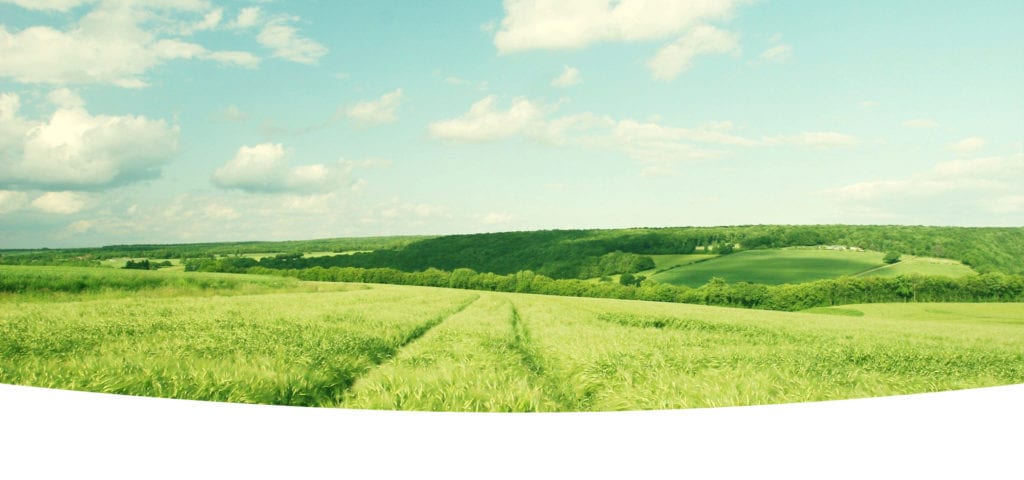Can CBD be Organic? If so, Why Organic CBD so Hard to Find?
With very little regulation in the CBD industry, it’s been somewhat of an “anything goes” situation for years. Companies can claim their products are organic and all-natural, when in reality they might be anything but.
While it might seem like there’s no shortage of organic CBD available, the truth is that many of the products that are labeled as organic aren’t necessarily so.
To better understand this and to find the best organic CBD oil, it’s important to understand what constitutes a product being organic, as well as the history of organic hemp certification in the U.S.
What is Organic CBD, in Legal Terms?
The Organic Foods Protection Act (OFPA) was passed under the 1990 Farm Bill, which was created to establish national standards for the production of foods labeled “organic.” Through the OFPA, the National Organic Program (NOP) was established to set the standards for the production, handling, and processing of organically-grown agricultural products. The National Organic Standards Board (NOSB) was also created, responsible for setting the standards under which organic food products could be produced.
While it took over a decade, the final national organic standards rules were established in December 2000 and enacted in April 2001.
You’re probably already well-acquainted with organic products. These days, organic products are everywhere and carry the familiar USDA Organic Seal on their labels.
What exactly does it take for a product to become certified organic, though?
To carry the USDA Organic Seal, there are several standards companies must adhere to. At the most basic level, produce and other crops must be grown without the use of chemicals, pesticides, or synthetic fertilizers. To read the full text of organic regulations, click here.
To ensure farmers are meeting industry regulations, third-party testing is used to assess growing practices and processors.
Here’s the thing, though.
While imported organic hemp products are eligible for USDA Organic certification, domestically grown hemp is a different story.
Check it out.
Domestic Organic Hemp Regulations
Under the 2014 Farm Bill, hemp production was legalized under limited conditions in state-run pilot programs.
Naturally, organic hemp farmers cultivating hemp crops under this bill were interested in USDA Organic certification. By 2014, certified organic products were everywhere, and the NOP had been operating in full swing for well over 10 years.
The U.S. has been importing organic hemp for years. Domestic organic certification should obviously be the next step, right? Unfortunately, in February 2016 the USDA issued an order that organic certification would not apply to domestically grown hemp.
In August 2016, however, the USDA overturned this order and released a new rule that stated hemp could be certified organic…as long as it was grown in accord with the 2014 Farm Bill under state-run pilot programs.
This changed in September 2018 when the USDA announced that they were creating plans for organic certification of industrial hemp production.
The application process is slow, expensive, and contains several steps interested parties must adhere to.
Requirements For Certified Organic Hemp
According to New Frontier Data, a company whose mission is to offer transparency in the cannabis industry through unbiased data and analytical reporting, there are five “not so simple” steps to receive organic hemp certification, including:
1. The Development of an Organic System Plan
This includes documentation pertaining to land use history, pest control activities, and soil management activities.
2. The Implementation of an Organic System Plan that is Reviewed by a Certifying Agency
After an organic system plan has been developed, it must be reviewed by a certifying agency. There are currently 80 organic certification agencies, with 48 located in the U.S. and 32 in foreign countries.
3. Facilities Must Pass Inspection by a Certifying Agency
Some of the areas of inspection include fields used for cultivation, water systems, and soil conditions.
4. Inspection Review
After inspection is completed, they are given to a certifying agency for review. Not only will previously mentioned areas be inspected, but things such as contamination risk assessments may require soil, tissue, or product samples.
5. Approval
Approval is the final step of the organic certification process. If the operation complies with USDA organic standards, it will be approved for organic certification. Renewal must be done annually, and operators are required to update their Organic System Plan if necessary.
The process itself is expensive and time-consuming. While the 2018 Farm Bill has paved the way for regulation in the hemp industry, obtaining a certified USDA organic seal isn’t as easy as one might think.
This being said, there are hundreds of hemp cultivators across the country that grow their crops in accordance with organic cultivation practices. They just can’t technically claim it on their labels.
Why Is Organically Grown Hemp So Important?
While the organic hemp certification is a long and difficult process, seeking out hemp products such as CBD that were grown organically is especially important.
Why?
Hemp is responsible for a process known as phytoremediation. Put simply, this means that hemp is excellent at cleaning the soil it’s planted in.
Defined as “the use of living green plants for the removal, degradation and containment of contaminants in soil, surface waters and groundwaters,” phytoremediation is a living, natural way to help clean up the environment.
Hemp is one of several phytoremediative plants. Others include sunflowers, Indian mustard, willow trees, and poplar trees. Hemp, however, is one of the best. It contains a relatively deep root system and is usually unaffected by any toxins that have accumulated in the soil it’s planted in.
Hemp is so adept at the process of phytoremediation that it was planted in abundance (along with sunflowers) at the Chernobyl nuclear disaster site to help clean up the disastrous levels of nuclear contamination in the soil. According to research scientist Slavic Dushenkov of Phyotech, the company responsible for hemp planting at Chernobyl, “Hemp is proving to be one of the best phytoremediative plants we could find.”
In a 2003 study, it was discovered that hemp has the capacity to soak up soil contaminants like nickel, cadmium, and chromium. Absorbing these heavy metals also had little to no effect on the plant’s external structure and physical form.
While hemp might be great to clean up contaminated soil, it’s important to understand that the contaminants it absorbs don’t just magically disappear. They also contaminate the plant. Not exactly what consumers are looking for when using CBD.
A hemp plant contaminated with toxins from the soil it’s grown in will produce contaminated hemp products. CBD included. It’s as simple as that.
For anyone seeking the wellness promoting properties of products derived from hemp, it’s important the plants cultivated to produce those products are grown in the cleanest environment possible.
While hemp is great for cleaning up toxins in the environment, it’s not so great when grown with toxic chemicals or contaminated soil when cultivated for CBD.
Think about it. As great as hemp might be for cleaning up the planet, it could have the opposite effect on your health. If grown in unfavorable conditions, CBD products could likely contain all the contaminants soaked up by the plant itself.
So if organic certification is hard to come by with CBD, what’s the best way to make sure your CBD products don’t contain any potential contaminants?
Third-party lab test results.
We can’t stress enough how important it is to make sure the CBD products you purchase have been lab-tested to ensure they’re free of pesticides, heavy metals, and other potential contaminants.
Transparent CBD companies will offer third-party lab test results for every batch right on their website, where they’re easy to find for consumers looking for quality products. If the company you’re looking at doesn’t offer these lab test results, it’s best to find a company that does.
What About Organic Carrier Oils?
While we’re on the subject of organic hemp, it’s important to think about the other ingredients that your CBD products might contain.
Carrier oils play an integral role in CBD tinctures and other products, as they help support the absorption of CBD in the body. MCT oil, typically derived from coconut, is one of the most common carrier oils used in CBD tinctures.
If you’re consuming CBD for enhanced wellness, it’s safe to say that you’ll want a carrier oil that does the same. Much like organic hemp, organic carrier oils are free from any harmful chemicals used to grow the plants from which they’re derived. If you want the best CBD products, you’ve got to choose those with the best ingredients.
This is why we’ve chosen to use organic carrier oils in all of our Premium CBD Oil Tinctures. Our orange- and lemon-flavored tinctures are made with organic MCT oil, while our mint- and natural-flavored tinctures are made with organic olive oil.
The organic ingredients we use in our tinctures don’t stop at the carrier oils they’re made with. We’ve also chosen to flavor our tinctures with organic essential oils. Just like other plant-derived products, there’s a difference between organic and non-organic essential oils.

